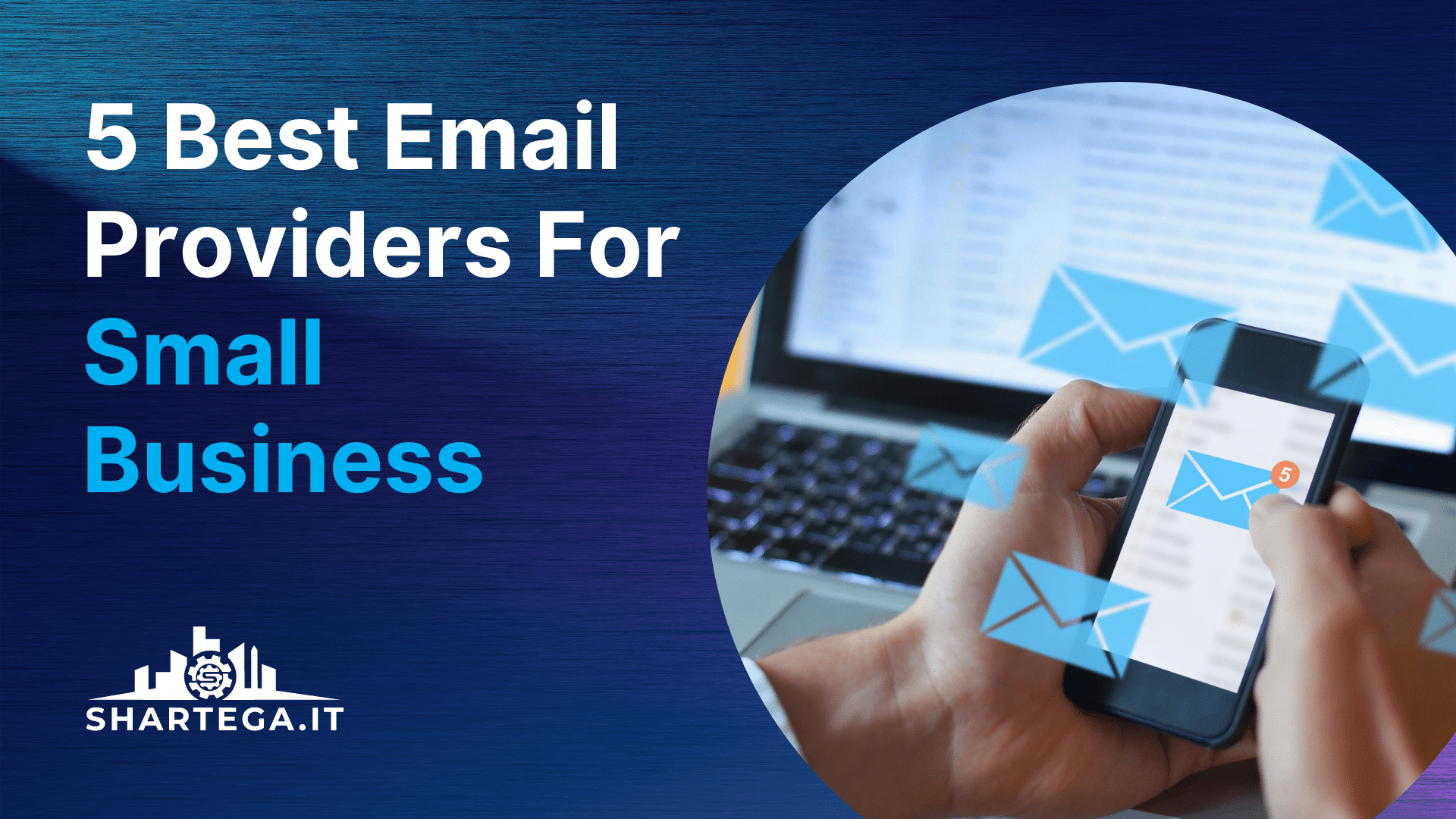Small businesses have just as much to gain from using the right email service as large multinationals. Not only can a decent email service help improve productivity within the company, but it can also help to elevate the company’s image (business email addresses are perceived as more official), and make it easier to stay in touch with clients and partners.
All successful enterprises have a business email. You can save space by digitally filing email messages, building easily searchable records, taking automatic backups, integrating email with your customer relationship management (CRM) platform, and implementing a high level of security with the latest encryption standards.
Used tastefully, email is also one of the most cost-effective techniques for marketing to prospects, whether you’re in B2C (business to consumer) or B2B (business to business) mode. In fact, 64% of small businesses are already using email marketing with a degree of success, according to the latest research.
If you’re looking for a better mail service for your small business, there are many advanced technologies and providers to choose from today. Some of the best options include:
Microsoft 365
Microsoft 365 (formerly known as Office 365) is a fantastic choice for small businesses. It includes email, as well as other productivity tools such as Word, Excel, and PowerPoint. Microsoft 365 also offers cloud storage and the ability to access your files from any device. It is slightly more expensive than some of its close competitors, with plans starting at $8.25 per user per month, but it offers the most impressive range of enterprise-level features.
The email feature, Microsoft Outlook, is one of the best-known email clients and comes as standard. It is paired with Microsoft Exchange, a business-focused email server that provides secure email delivery, prioritized mail facilities, and automated and synced calendars. When you sign up you get a 50GB mailbox, cloud-based management, a custom domain name, and much more.
In the age of hybrid and working, Microsoft 365 provides you and your teams the flexibility to work effectively from any location — with a 99.9% uptime guarantee. Microsoft claims that digital tools can bring about a 22% increase in remote employee productivity. So if you want to get your budget back under control and take back your time, it’s well worth giving Microsoft 365 a try.
You can test drive Office 365 Business Essentials at no cost for a month.
Google Workspace
Formerly known as G Suite, Google Workspace is a collection of collaborative business apps (including a popular email service) offered by the search engine giant Google. It provides small businesses with a professional email address using your own domain name, as well as online document editing, shared calendars, video conferencing, and online storage. It’s an affordable option, with plans starting at $6 per user per month.
Google Workspace is especially appealing to small business owners because of its customizable plans, and 24/7 support for SMEs. It’s cloud-based, so you don’t need to worry about system storage or running your own servers to support it. Many people already use Google apps on a daily basis, which means that new employees can easily adapt to the system. The service is always-online and Google offers a solid uptime SLA.
Gmail is massively popular today, claiming around 1.8 billion users worldwide. With Google Workspace you get an enhanced, ad-free version. The higher budget plans come with the extra benefit of unlimited storage.
Zoho Mail
Zoho Mail is a leading email service that is part of the larger Zoho Workplace suite of productivity tools. It offers an outstanding range of security features and customization tools that are perfect for business email, including custom domain support, unlimited storage, and support for multiple languages. It also integrates with a variety of other Zoho apps and third-party tools.
The free version supports SMEs with up to 25 users, but doesn’t come with much storage. However, the reasonably priced Premium and Business options, starting at $1 per user per month, bring some really high-end features. For example, they support OAuth 2.0, an authentication process that lets you access your inbox from other third-party apps without needing to tap in your password.
Zoho Mail has strong security credentials. You can add two-factor authentication (2FA) to your account, or use TouchID, push notifications, or QR codes, to add an extra layer of security when you sign into your account.
ProtonMail
70 million customers have already put their trust in ProtonMail’s secure email service. It applies end to end encryption (PGP encryption) and zero-access encryption when possible to protect your messages and keep them private. ProtonMail has a clean, user-friendly interface and offers support for custom domains. It has a free plan for personal use, and paid plans for businesses start at $5 per user per month.
Another benefit is that ProtonMail doesn’t serve ads — and the company will not sell or share your data with advertisers.
Yandex.Mail
Yandex.Mail is a feature-rich email service that offers a variety of tools for small businesses. It includes features such as unlimited storage, spam protection, automatic malware scanning, anti-hacking, and the ability to import contacts from other email services. Yandex.Mail also offers integration with other Yandex services. It has a free plan for personal use, and paid plans for businesses start at just $1 per user per month.
Closing Thoughts
Fortunately, business email is fast, competitively priced, reliable and here to stay.
However, when choosing an email service provider for your small business, it’s important to consider your specific needs — including privacy concerns, storage requirements, CRM email integration, and your remote working culture. Microsoft 365, Google Workspace, Zoho Mail, ProtonMail, and Yandex.Mail are all compelling options that offer a variety of features and pricing plans to suit different businesses.





